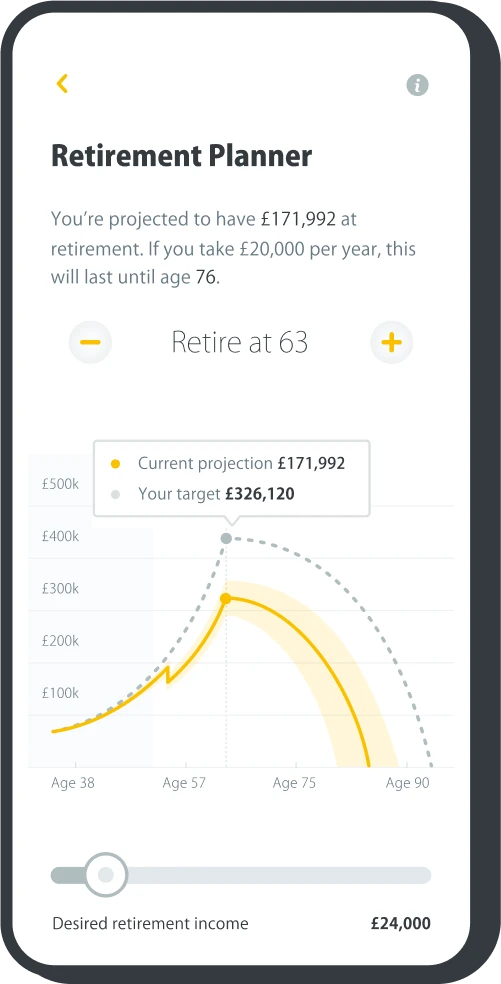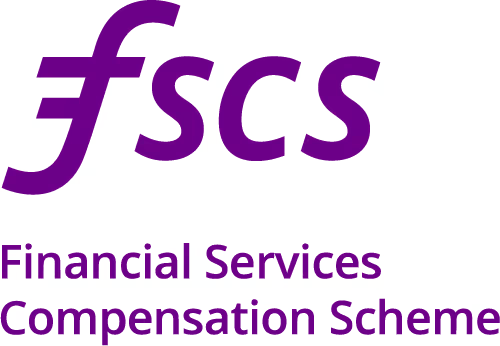Featured articles
Should I pay into a pension or an ISA?
There are several factors to take into account when you’re deciding whether to put money into a pension or an ISA (individual savings account), including accessibility, tax relief and inheritance rules. Our comparison of the two products should help you get to grips with both options.
Pensions and ISAs (Individual Savings Accounts) are both long-term savings products that will have their own advantages depending on your personal savings goals. Accessibility, tax relief and inheritance rules are among the factors that could impact your decision to put your money in one or the other, or maybe even both. Our pensions vs ISAs comparison may help you get to grips with these two options.
Pensions vs. ISAs
A pension’s a product for saving specifically for retirement, so you won’t be able to access it until you’re at least 55 (rising to 57 from 2028), apart from in very rare situations. One of the key benefits of saving into a pension is that the government contributes too, in the form of generous tax relief.
An ISAs a product that allows you to save money without paying tax on the interest you receive. You can open as many ISAs as you like as long as you meet the eligibility criteria for each one. In the (2025/26) tax year, the maximum amount you can save across all of your ISAs is £20,000. You can usually withdraw the money as and when you need it.
You’ll need to take your individual situation into account when you’re deciding whether to put money into a pension or an ISA. Your age, when you’re likely to need access to the money, and your tax relief entitlement may all need to contribute to your decision. Also remember that if you’ve got a workplace pension, your employer’s likely to make contributions too, which could considerably boost your savings.
For many people, it makes sense to pay money into both an ISA and a pension, as you may be keen to enjoy the tax benefits of a pension but need some money that’s accessible now. Here’s a summary of some of the main features of each product.
Be pension confident.
Combine your old pension pots into one new online plan. It takes just a few minutes to sign up.
Get startedTax relief on pensions vs ISAs
Tax relief on pensions
When you put money into a pension, you get an income tax refund on that money. For each contribution you make, you’ll get a 25% tax top up. Higher and additional rate taxpayers can claim a further 25% and 31% respectively through their Self-Assessment tax returns. This means that for a basic rate taxpayer, the government effectively adds £25 for every £100 you pay into your pension.
You can currently receive tax relief on savings up to 100% of your salary or a maximum of £60,000, whichever is lower. However, when you begin to take money from your pension, you’ll have to pay income tax, but 25% can be taken tax free.
Tax relief on ISAs
Unlike with pensions, ISAs won’t get you a tax refund when you pay in. Your investment is, however, protected from tax. This means you won’t pay any tax on the interest you earn.
Investments and returns on pensions and ISAs
Investments and returns on pensions
Balanced pension funds are usually invested in a range of assets, which is a way of managing risk. The money you put in a pension may be invested in a mix of shares, bonds, property and cash, for example. Pension funds fluctuate as they’re affected by market volatility, but as you’re investing for the long-term, highs and lows are often balanced out.
It’s impossible to predict how your pension fund will perform, but pension calculators sometimes use a figure of 4% or 5% growth (before inflation is taken into account), to make projections.
Investments and returns on ISAs
There are four different types of ISA. You can have multiple, but will have a savings limit of £20,000 annually across all of your accounts.
- Cash ISAs are just tax-friendly savings accounts. Growth will depend purely on the amount of money you pay in and how much interest you accrue over time.
- Stocks and Shares ISAs are invested in companies and funds that are listed on the stock market. As with pensions, there’s a degree of risk as your returns will be based on the performance of the assets you’re invested in.
- Innovative Finance ISAs use peer-to-peer lending. This essentially means that money you pay into your ISA is lent out to borrowers at a rate of interest. Your returns are based on the money you get back from the interest the borrower pays. These types of ISAs also carry a risk, for example if the borrower defaults on a repayment of their loan. They also have the further risk of not being covered by the Financial Services Compensation Scheme.
- Lifetime ISAs or ‘LISAs’ are designed for you to save specifically towards either your first home or your retirement. You’re limited to paying £4,000 per year into LISAs, but will get a 25% top-up from the government for every pound you save. LISAs can either be cash based where growth is dependent on interest, or invested in stocks and shares where, again, there’ll be risk based on market performance.
Withdrawing money from your pension or ISA
Withdrawing money from your pension
The earliest you can usually access your pension money’s from age 55, which will rise to 57 from 2028. There are different options available to you when you want to withdraw from your pension. You can take up to 25% as a tax free lump sum, you can leave your money invested and take cash sums out when you need them via drawdown, and you can use your cash to buy an annuity to ensure a guaranteed monthly income for the remainder of your life. Find out more on our page about cashing in your pension.
Withdrawing money from your ISAs
You can usually take money from your ISA whenever you want. LISAs are a notable exception as they are specifically designed for buying a first home or for retirement after the age of 60. If you want to withdraw from a LISA for any reason outside of these criteria, you’ll incur a 25% penalty which will cancel out any bonus you received from the government. With all ISAs, it’s important to pay close attention to tax rules and check if there are any charges when you withdraw.
Inheritance options with pensions and ISAs
Inheritance options with pensions
Pensions are held outside of your estate which means you’re unable to include them in a will. Therefore, if you’d like to leave money behind for a loved one, you’d need to complete an ‘expression of wish’ form. If you die before you reach 75 and you’ve got a defined contribution pension, your pension can be passed on to your beneficiaries tax-free. If you die after the age of 75, your beneficiaries will have to pay tax on the amount you’ve left them at their marginal rate of income tax. You can find out more in our article about passing on your pension when you die.
Inheritance options with ISAs
Unlike pensions, ISA savings are counted as part of your estate. This means that your beneficiaries may be liable to pay inheritance tax on the money held in your ISAs and other assets within your estate. Inheritance tax is due on estates worth over £325,000 and is charged at 40%, but it doesn’t apply if you’re passing your money on to your spouse or civil partner.
Previously, ISAs would lose their tax-free status when inherited, but under new rules your spouse or civil partner can inherit your ISA whilst retaining the tax benefits, giving them a temporary additional allowance.
If you’d like to hear more about pensions vs ISAs, there’s a dedicated episode of The Pension Confident Podcast available to listen to now. You can also read the transcript or watch the episode on YouTube to help clear up any questions you have about the different types of ISAs and pensions.
About PensionBee
PensionBee can transfer your old pensions into a new plan that you can manage easily online. Find out more about PensionBee’s vision or sign up to PensionBee now.
Risk warning
As always with investments, your capital is at risk. The value of your investment can go down as well as up, and you may get back less than you invest. This information should not be regarded as financial advice.
Last edited: 08-07-2025







